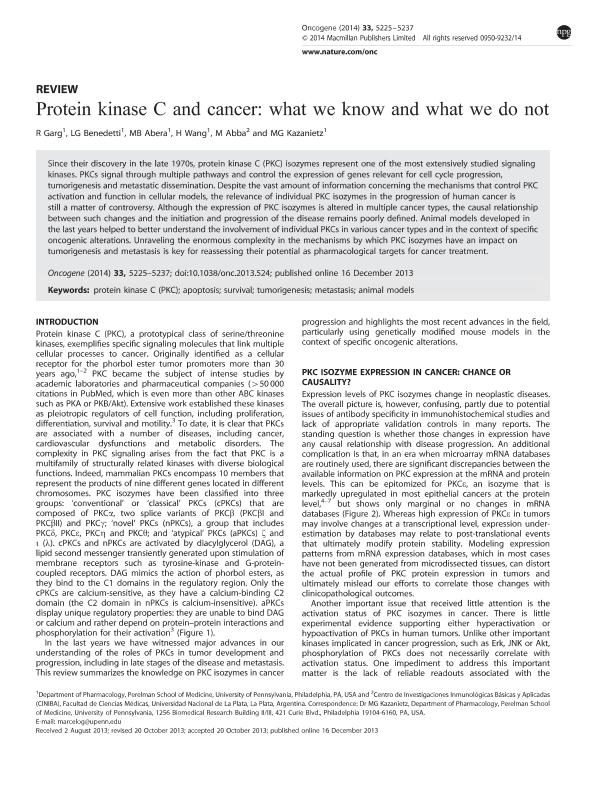Artículo
Protein kinase C and cancer: what we know and what we do not
Fecha de publicación:
11/2014
Editorial:
Nature Publishing Group
Revista:
Oncogene
ISSN:
0950-9232
Idioma:
Inglés
Tipo de recurso:
Artículo publicado
Clasificación temática:
Resumen
Since their discovery in the late 1970s, protein kinase C (PKC) isozymes represent one of the most extensively studied signaling kinases. PKCs signal through multiple pathways and control the expression of genes relevant for cell cycle progression, tumorigenesis and metastatic dissemination. Despite the vast amount of information concerning the mechanisms that control PKC activation and function in cellular models, the relevance of individual PKC isozymes in the progression of human cancer is still a matter of controversy. Although the expression of PKC isozymes is altered in multiple cancer types, the causal relationship between such changes and the initiation and progression of the disease remains poorly defined. Animal models developed in the last years helped to better understand the involvement of individual PKCs in various cancer types and in the context of specific oncogenic alterations. Unraveling the enormous complexity in the mechanisms by which PKC isozymes have an impact on tumorigenesis and metastasis is key for reassessing their potential as pharmacological targets for cancer treatment.
Archivos asociados
Licencia
Identificadores
Colecciones
Articulos(CCT - LA PLATA)
Articulos de CTRO.CIENTIFICO TECNOL.CONICET - LA PLATA
Articulos de CTRO.CIENTIFICO TECNOL.CONICET - LA PLATA
Citación
Abera, M. B.; Abba, Martín Carlos; Garg, R; Benedetti, L. G.; Wang, H.; Kazanietz, M.G.; et al.; Protein kinase C and cancer: what we know and what we do not; Nature Publishing Group; Oncogene; 33; 11-2014; 1-13
Compartir
Altmétricas




